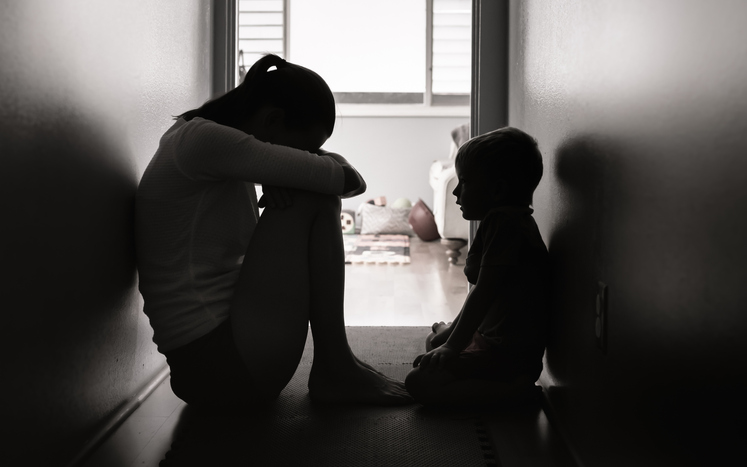Divorced women with unreliable co-parents face unique and often unseen challenges that can turn everyday life into a balancing act. From missed pick-ups to broken promises, navigating parenthood alongside someone not pulling their weight often feels like carrying the load alone. These struggles aren’t just logistical; they’re deeply emotional, leaving these women to hold everything together while shielding their children from the fallout.
1. They’re Always Forced to Pick Up the Slack

When an unreliable co-parent doesn’t follow through, the burden falls squarely on the shoulders of the responsible parent. Whether stepping in for missed school drop-offs or handling unexpected schedule changes, these women constantly adjust to fill the gaps. The frustration isn’t just about doing more; it’s about the emotional weight of knowing they can’t count on their co-parent. They become the default safety net, juggling work, kids, and home life without a moment to catch their breath.
2. They’re Constantly Managing Disappointment

Broken promises are one of the hardest struggles divorced women face with unreliable co-parents. Children often look forward to time with their other parent, and when plans fall through, the emotional fallout lands on the primary caregiver. These women must soothe hurt feelings, make excuses for the absent parent, and maintain their children’s trust. It’s an endless cycle of protecting their kids from heartbreak while quietly shouldering their frustration and sadness.
3. They Take on the Role of Sole Problem Solver

Whether it’s a forgotten parent-teacher conference, a missed doctor’s appointment, or last-minute childcare emergencies, divorced women often find themselves solving problems alone. The unreliable co-parent’s lack of dependability means every crisis becomes their responsibility to fix. This constant vigilance takes a toll, leaving little room for personal time or self-care. It’s not just about logistics; it’s the mental load of knowing that no one else is sharing the weight of parenting.
4. They Have to Navigate Financial Imbalance

Unreliable co-parents often contribute inconsistently—or not at all—to shared financial responsibilities. This leaves divorced women scrambling to cover school supplies, extracurricular fees, or basic necessities like clothing and food. The stress of balancing budgets while absorbing the financial gaps can be overwhelming. It’s not just about money; it’s the unfairness of carrying the financial burden while the co-parent avoids accountability, leaving them to pick up the pieces again.
5. They Struggle to Shield Children from Emotional Damage

Children often notice more than parents realize, and unreliable co-parents can create deep emotional wounds. These women work tirelessly to protect their kids from the fallout of missed visits or broken promises. They buffer the emotional pain, reassuring their children while hiding their anger or resentment. This dual role—parent and emotional protector—is exhausting, but preserving their children’s sense of stability and security is necessary.
6. They’re Juggling an Inconsistent Schedule

When co-parents are unreliable, schedules become fluid and unpredictable. Plans are constantly disrupted by last-minute cancellations or no-shows, forcing women to adjust everything from work commitments to weekend plans. The inconsistency creates chaos, leaving them to always act as the default parent. This struggle isn’t just inconvenient—it undermines their ability to establish routines, creating stress for them and their children.
7. They’re Left to Play “Bad Cop”

Unreliable co-parents often swoop in as the fun, carefree parent while leaving the hard stuff to the primary caregiver. Divorced women are left enforcing rules, setting boundaries, and ensuring structure, which can make them seem like the “bad cop.” Balancing discipline and affection becomes even harder when the co-parent undermines their efforts, creating tension and confusion for the children.
8. They’re On the End of Co-Parenting Gaslighting

Unreliable co-parents often deny their shortcomings or shift blame, leaving women questioning their perceptions. “I never said I’d pick them up” or “You’re overreacting” are common phrases that worsen an already stressful situation. This gaslighting undermines trust and erodes their confidence in their parenting instincts. It’s an emotional struggle that adds an extra layer of frustration to the practical challenges.
9. They Aren’t Able to Set or Enforce Boundaries

Setting boundaries with an unreliable co-parent can feel impossible. Whether it’s establishing rules about pick-up times or expecting consistent communication, these women often find their efforts ignored or undermined. The lack of respect for boundaries leaves them feeling powerless, forcing them to navigate parenting dynamics that often prioritize avoiding conflict over holding the co-parent accountable.
10. They Lose Time for Themselves

With the co-parent frequently missing in action, divorced women rarely get the breaks they need. They sacrifice personal time, hobbies, or social connections to meet their children’s needs. This relentless responsibility can lead to burnout, leaving little room for self-care or personal fulfillment. It’s not just a physical toll—it’s an emotional one that chips away at their well-being.
11. They Have to Balance Work and Being the Main Parent

When an unreliable co-parent doesn’t show up, the primary parent’s professional life often takes a hit. Whether skipping important meetings to handle a school emergency or losing opportunities due to inflexible schedules, these women face career setbacks because they can’t rely on shared parenting duties. The constant balancing act leaves them feeling like they’re behind, both at work and home.
12. They Endure Judgment from Others

Society often doesn’t see the full picture, leading to unfair judgments about divorced women who appear to “have it all together.” Many assume that co-parenting means shared responsibilities, unaware of these women’s extra burdens. The stigma of being a “struggling single mom” can feel isolating, especially when their efforts to shield their kids from the effects of an unreliable co-parent go unnoticed.
13. They Feel Constantly on Edge

An unreliable co-parent’s unpredictability creates ongoing tension, leaving these women constantly bracing for the next letdown. Will they show up on time? Will they forget an important date? This persistent state of uncertainty isn’t just frustrating—it’s exhausting. It forces women to remain hyper-vigilant, always preparing for contingency plans, which only adds to their daily emotional and mental load.
14. They Constantly Second-Guess Their Decisions

Without a reliable partner to weigh in on significant parenting decisions, divorced women are left making choices alone—and then questioning whether they’ve done the right thing. From medical concerns to school options, the absence of a supportive co-parent means they must act as the sole authority, often without a sounding board. This can lead to feelings of doubt and isolation, as the burden of every outcome—good or bad—rests entirely on their shoulders.
15. They Have to Navigate the Emotional Toll in Front of Their Kids

Maintaining composure in front of their children while dealing with an unreliable co-parent can feel like walking a tightrope over a canyon of emotions. These women often suppress their frustration, anger, or sadness to prevent their children from absorbing the tension. This constant emotional regulation is draining and isolating, as they’re unable to fully express the toll it takes. Behind their calm exterior lies a whirlwind of feelings they rarely get the chance to process openly.




